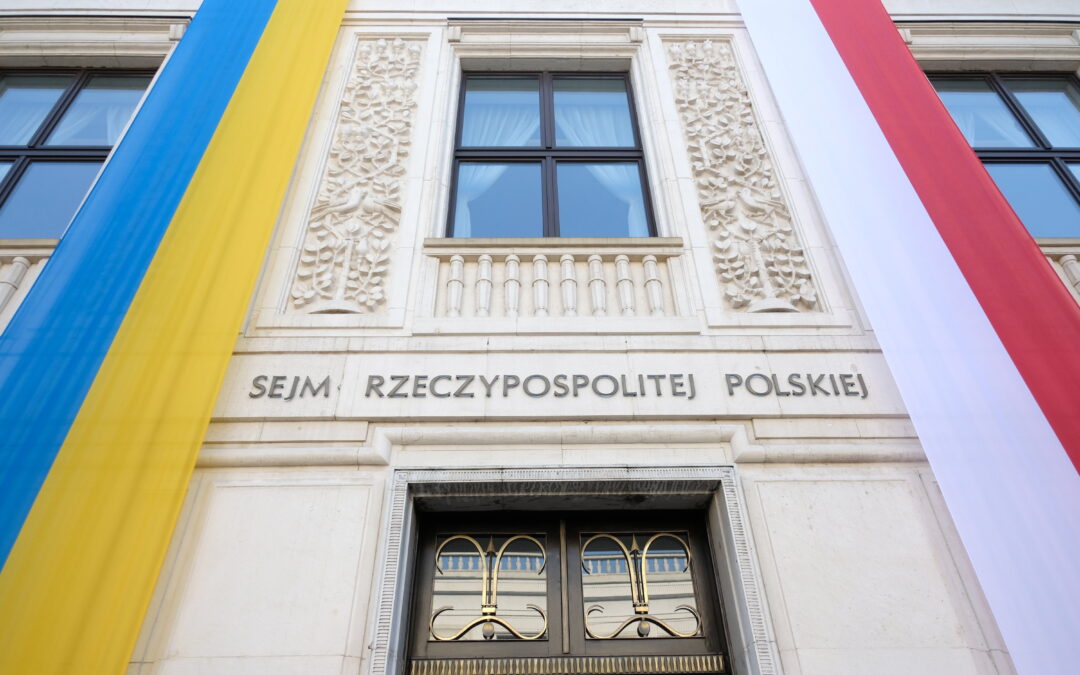The dominant lower house of Poland’s parliament has overwhelmingly approved a bill that would allow Russian-linked assets to be frozen, ban the import of coal from Russia, and prohibit symbols supporting Russia’s invasion of Ukraine.
In a vote yesterday evening, 445 members of the 460-seat Sejm were in favour of the measures. No MPs opposed it, while the only ones not to vote in favour were all 11 MPs from the far-right Confederation (Konfederacja) party, who abstained.
The legislation was proposed last week by the government. It admitted that a unilateral trade embargo by an individual member state may violate EU law but said that it “cannot wait any longer” for Brussels to act on the issue.
The proposed law would empower the interior ministry to create a list of people and entities that support Russia’s aggression against Ukraine – separate from the one held by the EU – against which Poland would apply sanctions allowed under EU regulations, reports TVN24.
This could include freezing their assets, as well as excluding them from public procurement. The government also wants powers to seize – rather than just freeze – such assets, but that would require a change to the constitution. A separate bill to that effect was submitted to the Sejm yesterday, reports Interia.
As well as banning the import of coal from Russia, the bill approved by the Sejm last night includes a prohibition on the use and propagation of symbols supporting Russia’s aggression in Ukraine, such as the “Z” logo, reports Gazeta.pl
The legislation now passes to the upper house Senate, where the opposition has a majority. However, although that chamber can delay and suggest changes to the bill, the more powerful Sejm, where the government has a majority, can overrule those.
Once approved by parliament, the bill would pass to President Andrzej Duda, generally a government ally, who can sign it into law, veto it, or send it to the Constitutional Tribunal for assessment.
Main image credit: Slawomir Kaminski / Agencja Wyborcza.pl

Daniel Tilles is editor-in-chief of Notes from Poland. He has written on Polish affairs for a wide range of publications, including Foreign Policy, POLITICO Europe, EUobserver and Dziennik Gazeta Prawna.




















